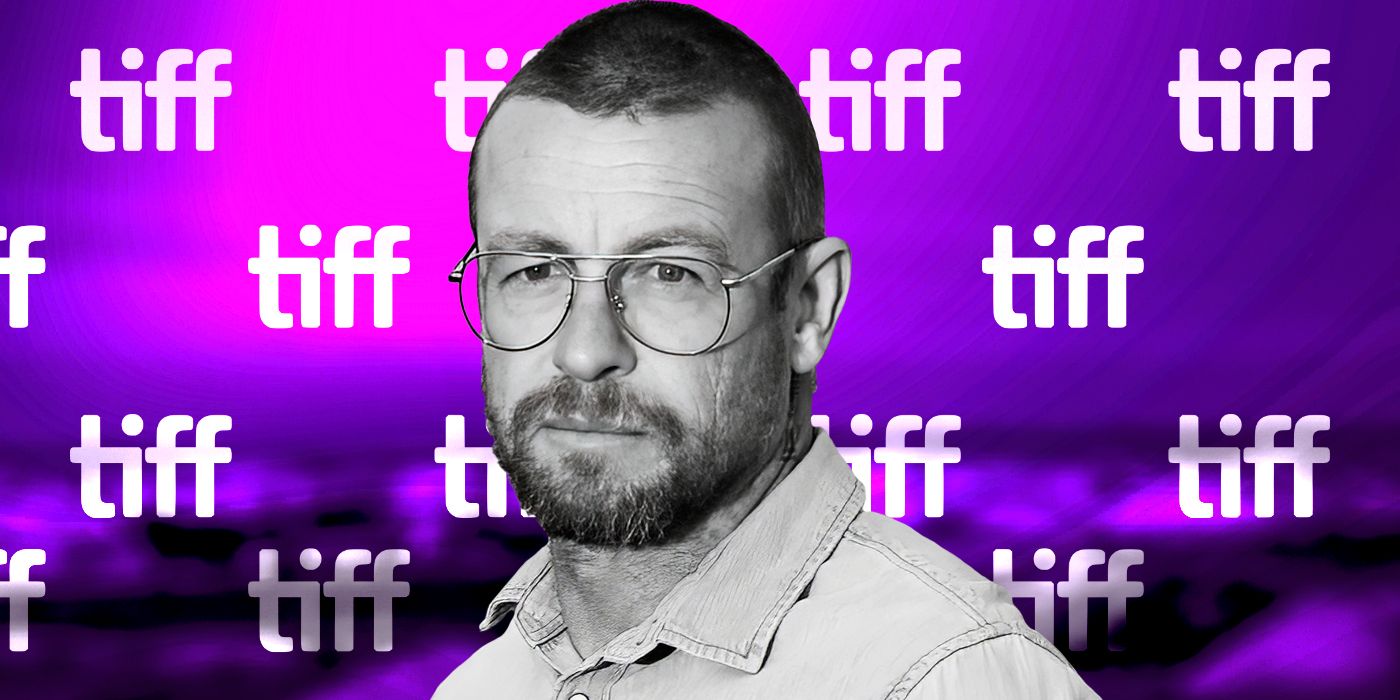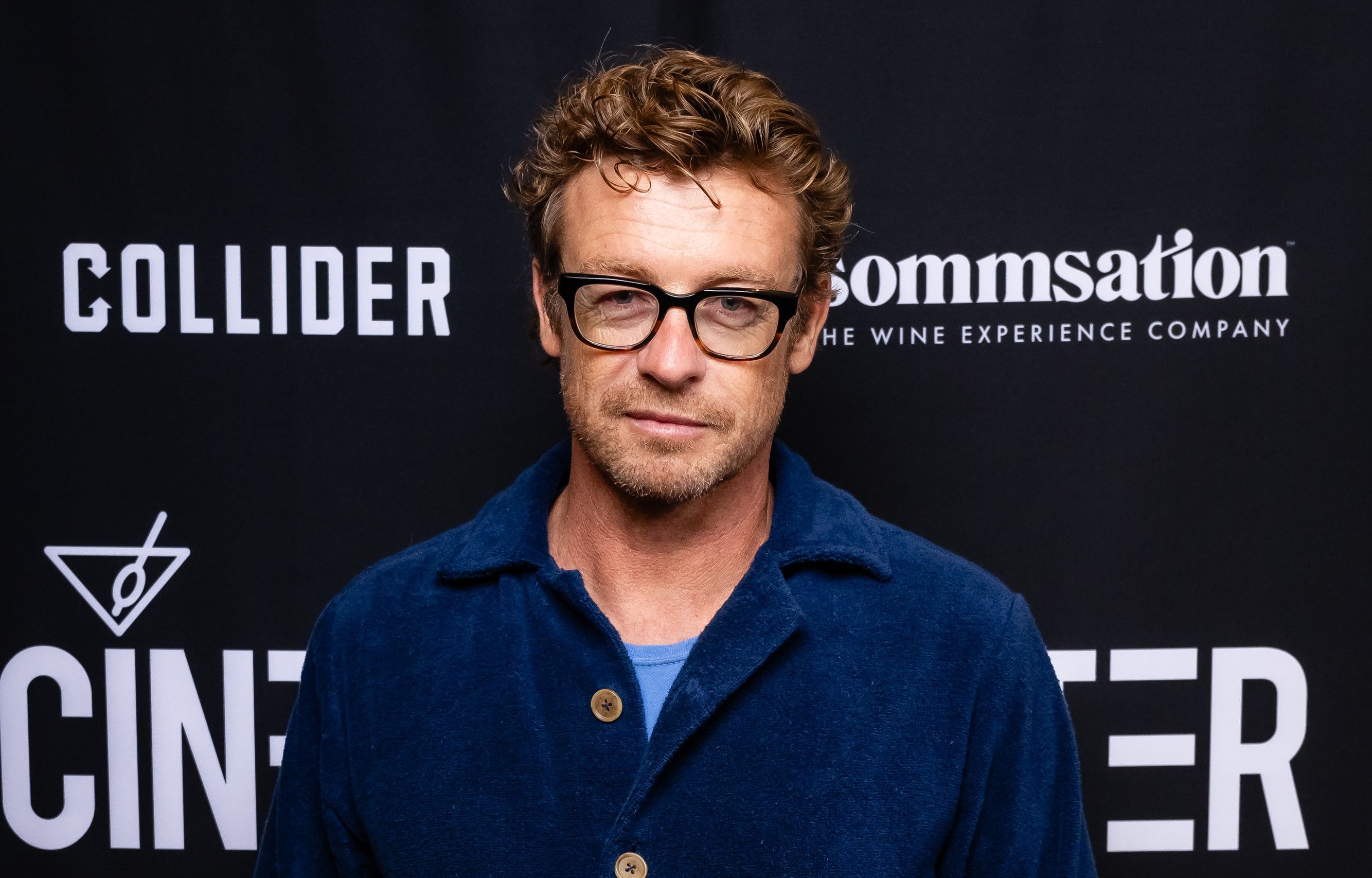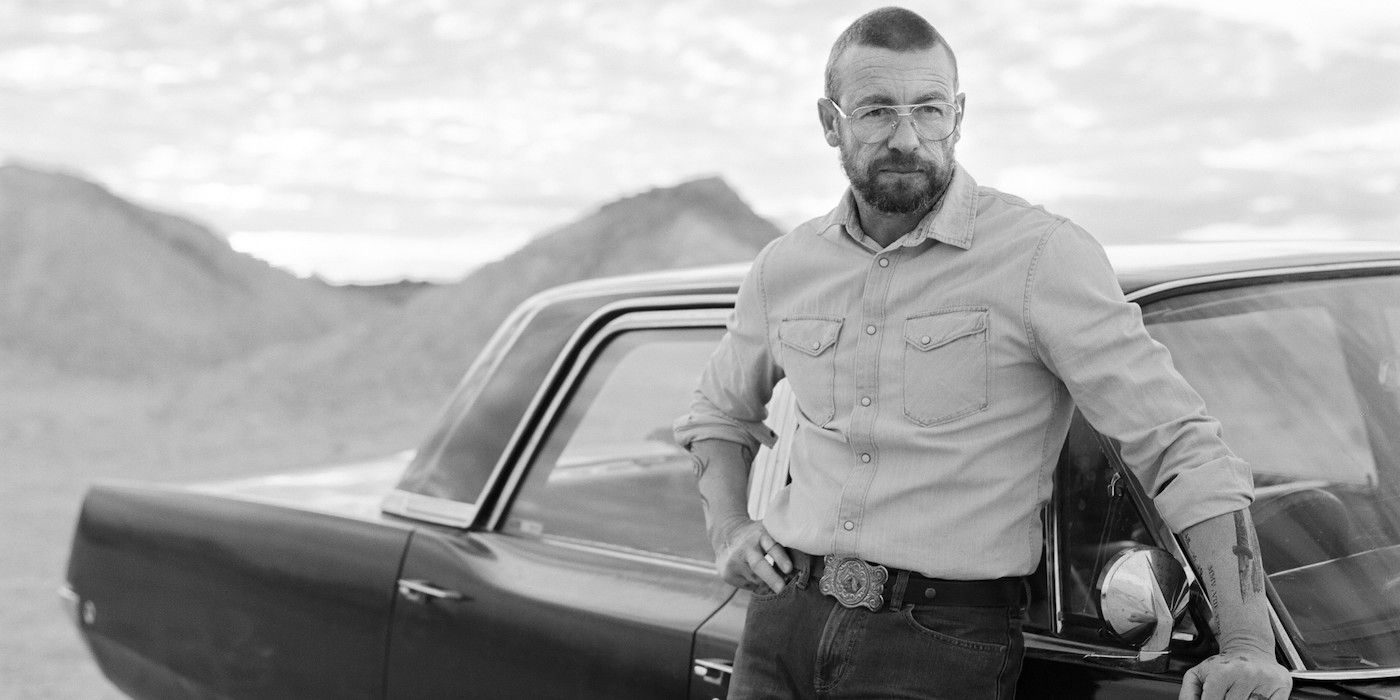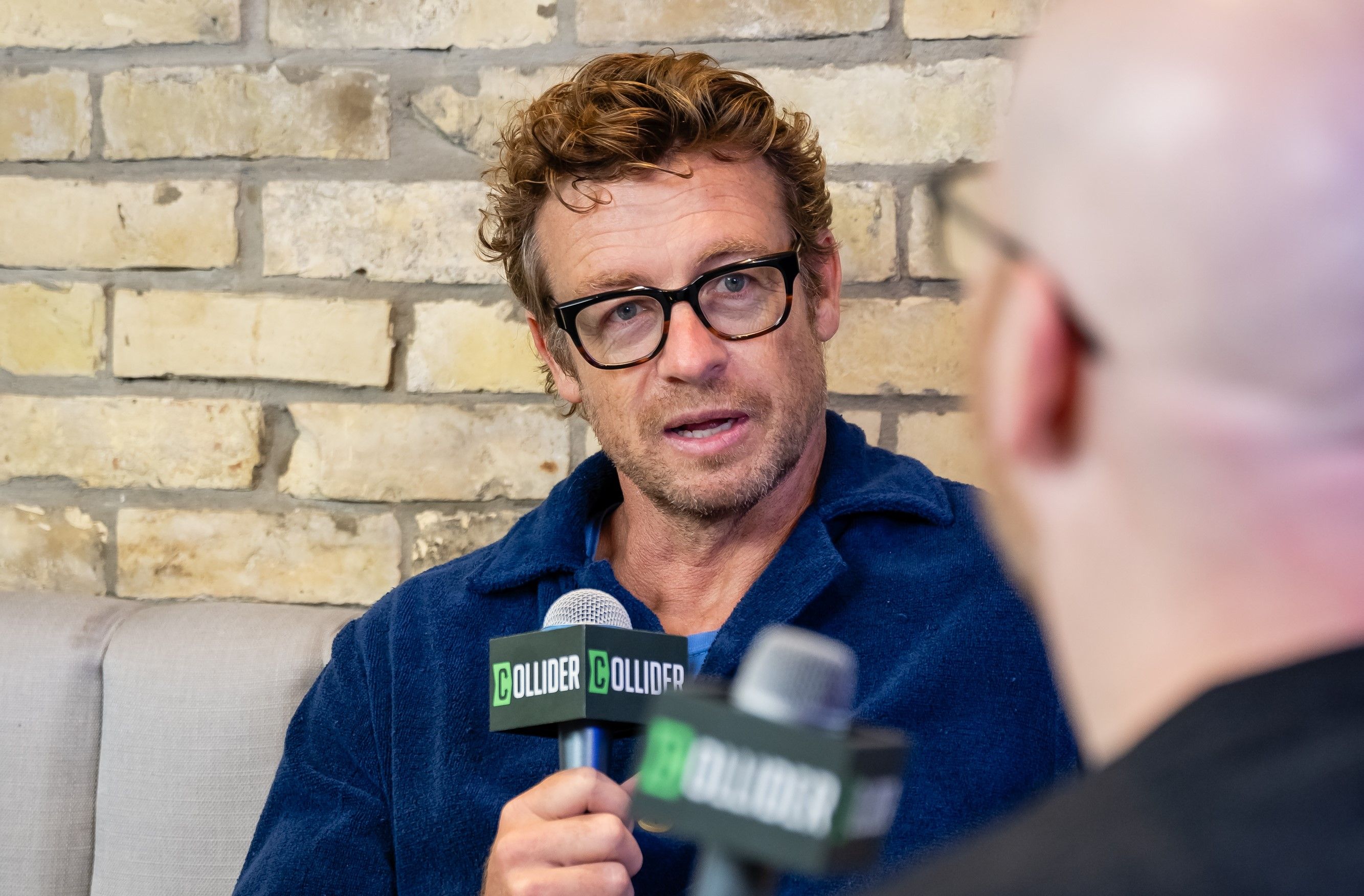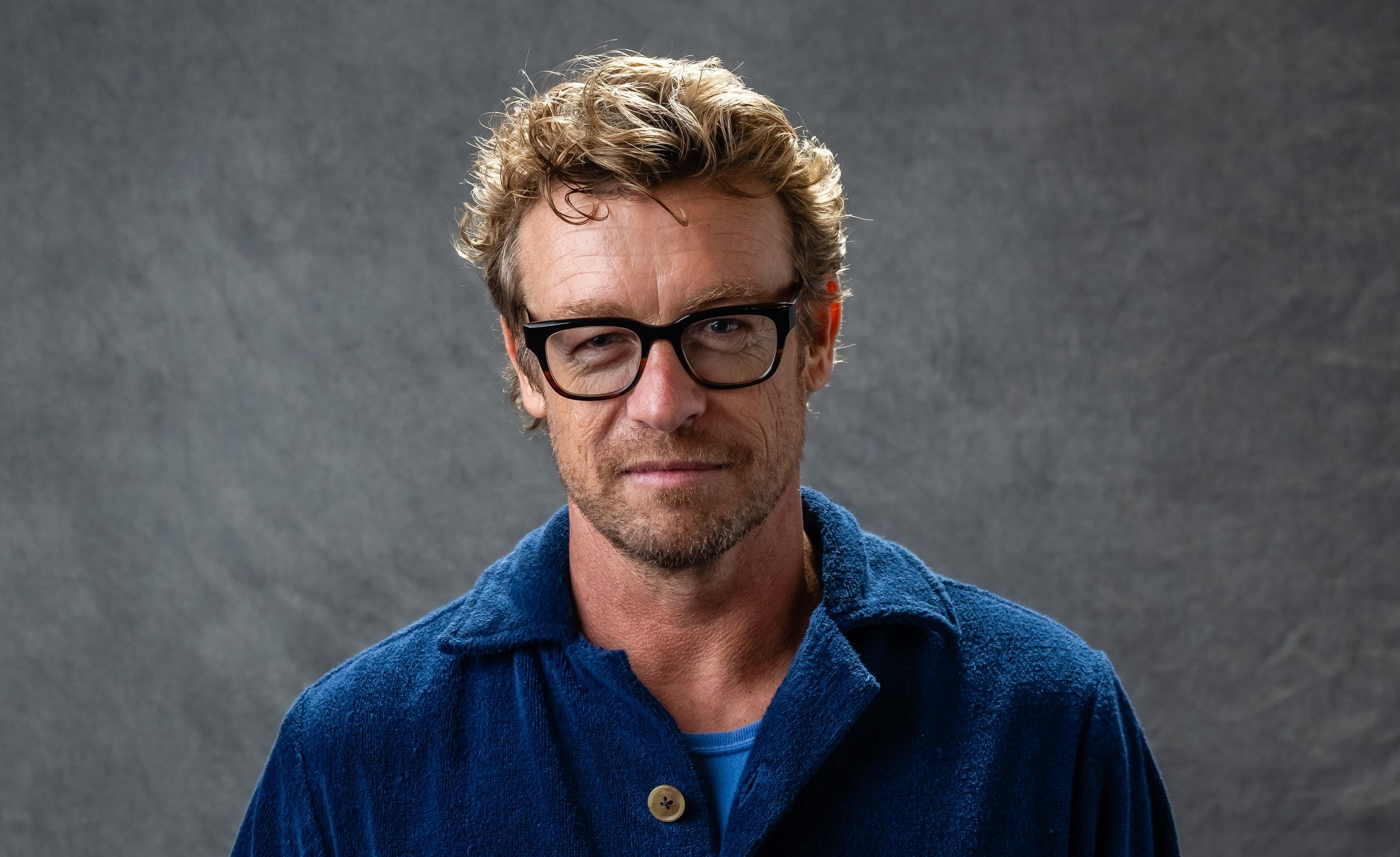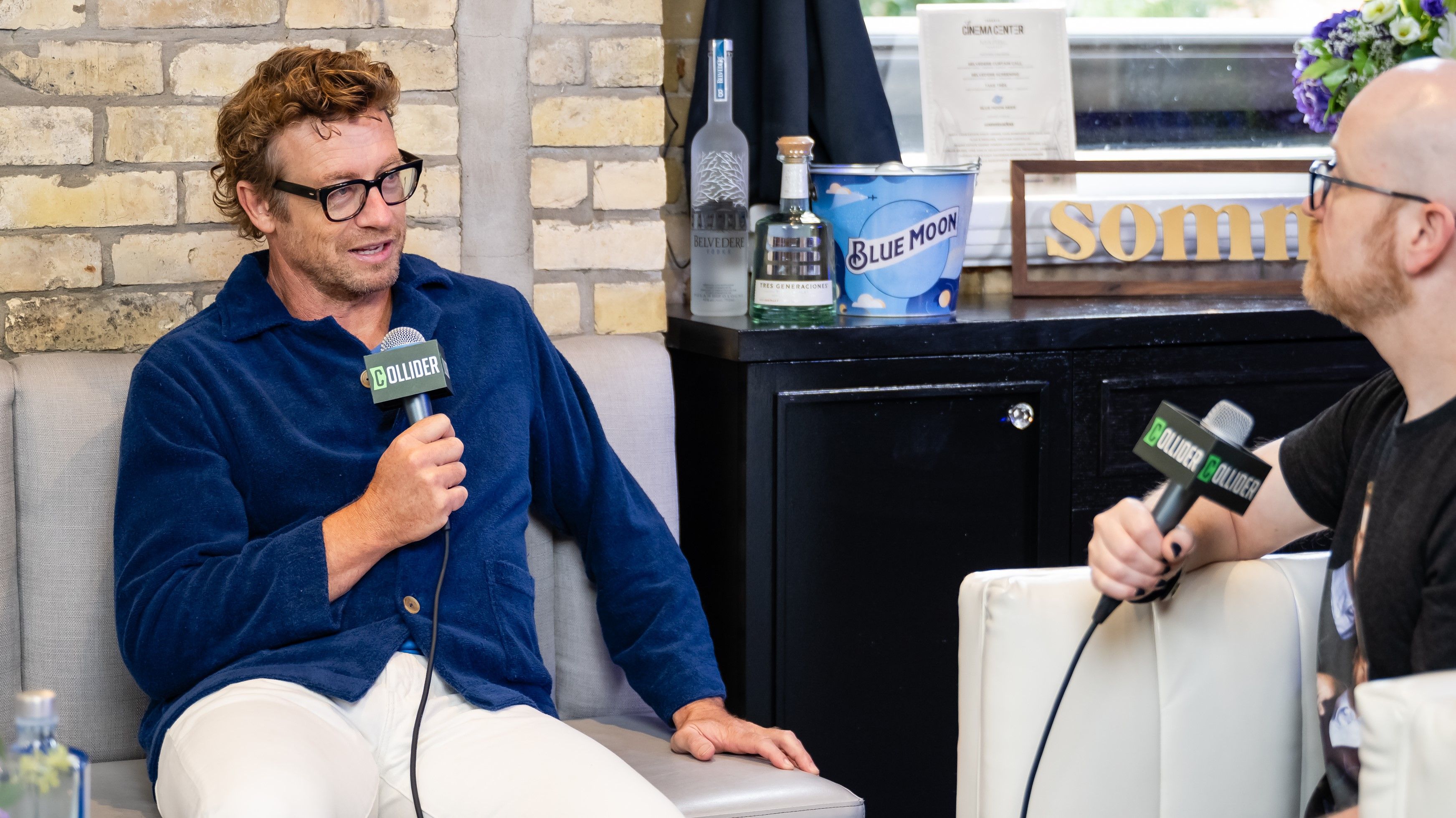The Big Picture
Filmmaker Ivan Sen returns to the Toronto International Film Festival with this year’s Limbo, starring Simon Baker, Natasha Wanganeen, and Rob Collins. Baker, who serves as executive producer and star of the film, also returns to the festival where he premiered his 2017 directorial debut Breath and sits down with Collider’s Steve Weintraub in our studio at the Cinema Center by MARBL to discuss working with Sen on this indie “Outback noir” in only 16 days.
Limbo is Sen’s latest passion project, from penning the script to sitting in the director’s chair, the auteur also served as cinematographer and editor for this simmering crime drama, set against the stark backdrop of the Australian Outback. In the film, Baker plays Detective Travis Hurley, a man haunted by inner turmoil and addiction, who finds himself in Limbo, a small mining town where years ago a young Indigenous girl was murdered. The case is long cold, but Hurley has reason to believe Charlotte’s killer may still be active. His reopening of the case, however, is viewed as hopeless by Charlotte’s sister Emma (Wanganeen) and brother Charlie (Collins), who’ve already experienced the apathy of the law enforcement and townspeople.
In their one-on-one, Baker talks about his transformation into Detective Hurley, what about Sen’s film drew him to the project, and how this collaboration was a long time in the making. Baker also discusses the typecasting in Hollywood, why working on an intimate set in the Outback was refreshing for The Mentalist star, and which novel his next directorial pursuit will be based on. For all of this and more, check out the video above or the full transcript below.
COLLIDER: We spoke here in 2017. You directed a really good movie, and I’ve been waiting for the next one. When are you directing again?
BAKER: It’s not official, but I’m planning on directing something early next year.
When you say not official, does that mean you’re waiting on financing?
BAKER: Yeah. That’s how it goes. That’s the film business. Particularly with independent film, you’ve gotta put the pieces of the puzzle together.
I know it’s not official, but is it an Australian story? What can you tease without saying anything?
BAKER: I don’t really wanna say anything.
Okay, I won’t put you on the spot. But I’m happy that it’s something you’re really trying to make happen.
BAKER: Yeah, it is.
Can you give me a title or no?
BAKER: No. I could, but it’s more fun not to. I’m sorry. I’m being a bit sadistic. It’s based on a book called The Shepherd’s Hut.
Thank you for giving me a little info. So I thought your film was so well done and restrained and beautiful to look at. I could keep on going. No one watching this interview will have seen the movie yet, and I hate doing it, but how have you been describing the film to friends and family?
BAKER: I think the film’s a meditation on the inefficiencies of the justice system when it comes to First Australians in Australia.
I really thought it was so well done. Was it a script that immediately pulled you in?
BAKER: The Australian film industry is a very small industry, and there are some great benefits of the intimacy of what the industry is. It was a couple of producers that I’d worked with before on a film called High Ground, Bunya Productions, and the writer-director Ivan Sen is someone that I’d met a long time ago. We had a plan very early on when he’d just finished film school in the mid-90s; we were gonna try to do a film together, but it didn’t work out. He went on and made a couple of different films. He’s an auteur, in the truest sense, where he writes, he directs, he’s the cinematographer, he cuts the films, he does the score. So, I was really curious about him, as an artist, to work with him and his process. We made the film in 16 days. I was on board pretty early. It was a combination of the producers that were doing it, the subject matter, Ivan, obviously, and the experience of working with him, and I liked the story. I was very curious about the story and the way he wanted to go about how he was gonna shoot the film.
It’s a really big departure, in terms of your look for the film, with the tattoos and a different kind of haircut. I don’t know how well-known you are in Australia, but with that kind of change of appearance, did you find yourself being able to be more anonymous? Did you enjoy that kind of appearance, going out in public?
BAKER: I didn’t really think about whether or not I was enjoying that appearance when I was in public. Maybe it’s a really obvious answer, but I think a lot of actors like the opportunity to step outside of the way they’re perceived. Obviously, I was on a very successful television show in the 2000s. Through to about 2015, I was on a couple of quite successful TV shows. Those network television shows, once they’re sold around the world, they’re very pervasive. They get into people’s psyches. So, for a lot of people, it’s very different to see me play a different kind of character. And it’s hard to get those opportunities, really, as an actor. I remember I did a film, years ago, called The Devil Wears Prada. The film was very successful, and I was getting offered a lot of films to play that same character. There’s a lot of times when Hollywood doesn’t have a great imagination when it comes to casting. But I was really fortunate with Ivan. He’d been really supportive of me as an actor for a long time and was interested in pushing me a bit, and I was interested, as most actors are, to be pushed and challenged.
I’ve seen Brad Pitt talk about the fact that he loves playing beat-up characters with band-aids, or whatever it is, because it allows you to shed your skin almost. I would imagine it’s the same for you in this, with the way you have an addiction and you are completely different than the way you actually look.
BAKER: Yeah. Look, everyone works in different ways. I don’t necessarily come at it from an external standpoint. I came at it more from an internal standpoint, and then those external things are just adornments that support whatever is happening internally. I’m really starting to sound like a wanker now.
You mentioned that you shot this in 16 days. Talk a little bit about what it’s like, as an actor, knowing you really do have to nail your shit every day. There’s no wasted time on this.
BAKER: Yeah. I’ve been doing it for a fair amount of time now. I like to have a really good time when I’m working, and I find that I can have a really good time if I’m very well prepared and if I’m relaxed. Really, the key to it is to be relaxed. I’ve settled into that, just through the decades that I’ve been doing it now. With a film like this, it’s a very small cast and a very, very small crew. The most people we had on set was maybe 15. There’s a real intimacy in working that way.
Do you enjoy being on a set like that, because that is very intimate for a film?
BAKER: Yeah. I love it. It’s great. You’re cutting out the risk of communication getting diluted. Do you know what I mean?
100%.
BAKER: The idea of you asking someone a question, and then that person asking the next person, with the reinterpretation of that question each time, you end up getting a sandwich when you ask for a cup of tea. That can happen on a film set. That same concept can be taken into the creative. That’s where it’s most important. Whereas when I was talking with Ivan, I was talking to the writer and the director. I’m talking to the filmmaker, and he’s inviting me into the process. Together, we are collectively making the film. There’s no pixels being dropped in communication. That’s helpful. That’s wonderful. Also, the economic way he wanted to shoot it, because I have directed before and I have a pretty strong understanding of camera, I could play to what he wanted to do with the aesthetic and the style of the piece.
When you’re inhabiting a character, like the one in Limbo, when you leave set, can you just shut it off and become Simon again, or do you carry a piece when you’re shooting with you, so it’s easy to turn on? Maybe I’m getting too analytical about this, but I’m just curious how you like to work when you’re making a film like this and you’re playing a character so different than who you are?
BAKER: It’s different every time for me. Everyone approaches it in a very different way. There are a lot of people that are very studied and very studious about the way they approach work and a character. This one, I drove three and a half thousand kilometers out to where we were shooting from Sydney. I’ve got an old VW Transporter. That was my trailer, and I drove that out and camped on the way. During that process, for four days, camping on my own out there, I was really processing the character. I had been thinking about the character intermittently, over about a year or so when Ivan and I started talking about the project. And then, it got to a certain point where we were there one day, during pre-production, and Ivan picked the camera up. We were doing some hair and makeup stuff and wardrobe, and he picked the camera up, and we went out to one of the locations, which was just in the town. Everything was all practical locations. Nothing was built, and pretty much nothing was dressed.
So, it was really what you see on screen.
BAKER: Yeah. And Ivan is quite remarkable. He’s a photographer, first and foremost, and he photographed all the locations. He made the decision to shoot it monochromatically. We went out with the camera, and he put the camera on sticks and threw a lens up, and something just happened, and the whole physical nature of the character clicked in. And then, it’s just about hanging onto that and trusting that and clicking that in. But no, I don’t go home [with it], apart from the smoking. I had to smoke a lot, and I’m not really a smoker. I’ll smoke a cigarette here and there, but I had to be very familiar with smoking. I’m always looking for authenticity when I’m watching a film, and particularly a story like this. It’s dead if it doesn’t have authenticity. Ivan is an authentic filmmaker, the story is a very authentic story, and it needed that kind of commitment to it. I had to look like I smoked, so I smoked cigarettes a lot, which was not great. I’m glad it’s over.
What I’d be most nervous about is that I have an addictive personality.
BAKER: Same.
It’s all great for the few weeks you’re filming, but then the cameras are stopped. So, how quickly can you stop doing that? How long did it take?
BAKER: It’s been a struggle.
That’s what I mean.
BAKER: But that’s okay. I wasn’t doing smack.
Sure. But tobacco is the devil. It’s poison. The thing about it—and not to dive into this rabbit hole—it rewires your brain chemistry and makes it very difficult to quit. It’s not just you. It’s hard. So, I’m almost out of time with you. This is a little generic, and I apologize, but your film is premiering at the Toronto Film Festival. I love this place. You’ve been here before, you know this festival. What does it mean for you, for a film like this that’s a true indie, to be here and be a part of this?
BAKER: Well, we’re lucky that we’re here. We’re lucky that we could get a waiver to come and support the film. I’m very privileged in the sense that since I made Breath in Australia in 2016, I’ve lived in Australia and worked in Australia on very independent films outside of the studio system. It’s a great privilege to be able to work in that way. But to be here, it’s good. There was a time when Australian films felt quite parochial and didn’t necessarily travel well unless they were potentially mocking Australian culture in some way. That’s not to discredit any of the Australian films that had great success internationally, but very few did. It’s always a great honor and privilege to have a truly Australian story be seen by international audiences. It played at Berlin, which was really an exciting festival to go to, for its European premiere. And then, to be here, I have a great history with Toronto as an actor, as well as a director. So, I think it’s really good. I think there will be a real nice understanding that a Canadian audience will have with this film.
I really like the way the film is photographed, and his choice for a lot of two-shots and where he placed the camera. You mentioned that he’s a photographer. Can you talk about the cinematography of the film, because it’s very good?
BAKER: Yeah, what’s great about Ivan is that he’s very considered. I’m hyper-vigilant and I’m scanning a lot of the time when I’m on a film set, and I’m thinking about a lot of different things, which can be a problem for me internally. Ivan is very considered with his whole approach to the way he makes a film, and it’s reflected in the economy of his shots and the way he shoots something. He comes to most stories, first of all, from a sense of place. That place was really strong and long in his mind before he even wrote this film, to construct the story around a specific place. I find that aspect of cinema very exciting when I can go to the movies and it’s a portal into this world that I haven’t experienced and haven’t been to. It almost feels like science fiction. It feels like a lunar landscape at times. And his choice to shoot it in black and white was a very bold choice, given that in color it’s quite spectacular out there, too. But we’ve seen so much of that red dirt Australian outback that to see it in a monochromatic palette, it pops the drama off the screen in a different way. The performances can be very subtle.
I could keep going, but because people haven’t seen the movie yet, it’s really hard to talk specifics.
BAKER: Sorry.
No, we’re teasing the audience on why you should go see it. There are so many specifics I wanna talk about in the third act.
BAKER: In Australia, a lot of the critics referred to it and the films that Ivan makes – Mystery Road and Goldstone – they’ve coined it as Outback noir.
Limbo screened at TIFF 2023. Special thanks to MARBL Restaurant for hosting Collider as well as the additional sponsors Sommsation, a top wine experience brand and online shop and Molson Coors’ Blue Moon Belgian White as the beer of choice at the Cinema Center. Additionally, Moët Hennessy featuring Belvedere Vodka featured cocktails and Tres Generaciones Tequila.

